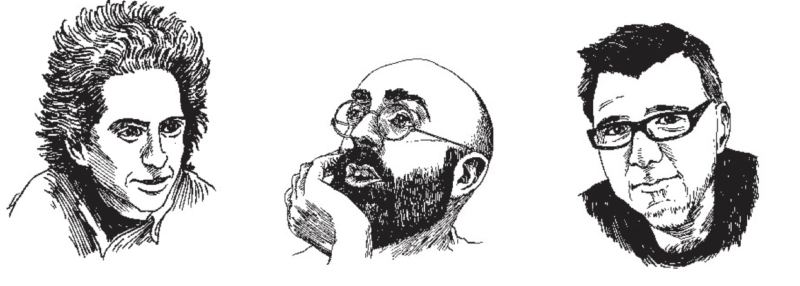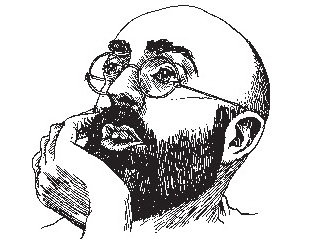A Roundtable Discussion with Daniel Alarcón + Eduardo Halfon + Santiago Vaquera-Vásquez
Santiago Vaquera Vasquez

Uses of the Spanish language:
Border crossing
Community building
Returning to childhood
Moving beyond the contraints of identity politics
I started thinking about language—I mean really thinking about it—a few years ago when I signed up for first-semester Arabic at UC Berkeley. There was something about entering a language knowing absolutely nothing that made me consider what it is I know about those two languages I do speak (and read and write), English and Spanish. In class, we began with the alphabet, the sounds each symbol represented, and even now I am still working on the construction of sound, words, sentences. It’s been said before that language is the architecture of thought, and while I’m not convinced this is entirely accurate (my two-year-old nephew conveys a great deal without the benefit of words) it seems self-evident when one is beginning, when the immensity of all that you don’t know is overwhelming. I’m referring to the poetry of a language, of course, the beauty of which is most apparent (for me) when it is used in daily life—this is the level at which it is transformed, made new. This is the level of language-creation that I find most inspiring when I’m writing, which is odd, considering I write in English; the language I love most is Spanish. Not the literary language, necessarily, but its spoken dialects. It is impossible not to be awed by the inventiveness of language as it exists all over Latin America and Spain, the breadth and diversity of it, the way each local and regional vernacular traces a particular history, honors it, then subverts it, transcends it.
I wanted to talk about the most basic tool that writers utilize—language—with two artists uniquely situated to understand its significance. For most of us, the language we work in is a matter of circumstance, not choice; our language is an inheritance, an accident of the time and place of our birth, the education we were given or subjected to, the country we or our parents emigrated to. Eduardo Halfon and Santiago Vaquera-Vásquez, two fluent, native English speakers raised in the United States, have both chosen Spanish as their literary language; something that I’ll admit struck me at first as crazy. I mean, isn’t writing fiction hard enough already?
Eduardo Halfon was born in 1971 in Guatemala City. He studied Industrial Engineering at North Carolina State University, and has published eight books of fiction, most of them in Spain, garnering wide critical praise. His latest novel, The Pirouette, to be published in 2010, was recently awarded the XIV José María de Pereda Literary Prize, in Cantabria, Spain. His work has been...
You have reached your article limit
Sign up for a digital subscription and continue reading all new issues, plus our entire archives, for just $1.50/month.
Already a subscriber? Sign in





